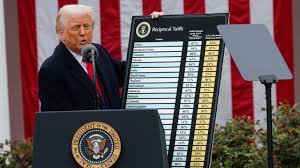The proposed 5% excise duty on telecom services in Nigeria has sparked intense resistance from industry stakeholders and consumer rights groups, with legal and political challenges mounting against its implementation.
The National Association of Telecoms Subscribers (NATCOMS) is leading the charge, preparing to file a petition with the National Assembly to delay any decisions on the tax until a court ruling is issued. According to NATCOMS president Adeolu Ogunbanjo, enforcing the tax before the court’s decision would be unconstitutional. He argued that the move would unfairly burden consumers, who are already subjected to over 40 different taxes on telecom services.
“We believe the government should respect the judicial process before proceeding with such policies,” Ogunbanjo stated.
Legal and Industry Pushback
The proposed tax, initially introduced in 2022 under former President Muhammadu Buhari but later suspended in 2023 by President Bola Tinubu, has faced widespread criticism. NATCOMS’ legal adviser, Bayo Omotubora, labelled it as double taxation, warning of its potential to undermine affordable access to telecom services for millions of Nigerians.
Telecom operators and industry bodies, including the Association of Licensed Telecom Operators of Nigeria (ALTON) and the Association of Telecommunications Companies of Nigeria (ATCON), have also voiced strong opposition. ALTON’s chairman, Gbenga Adebayo, described the tax as “insensitive,” citing the economic hardships already plaguing the nation.
Tony Emoekpere from ATCON echoed similar concerns, stating that the excise duty would only exacerbate the challenges faced by telecom operators, who are already struggling under the weight of existing levies and operational costs.
A Revival of Controversy
The reintroduction of the excise duty is part of a larger tax reform bill aimed at increasing government revenue. However, critics argue that it threatens to deepen financial strains on consumers and disrupt the telecom sector’s growth.
The initial backlash against the tax in 2022 led to its suspension, with stakeholders lauding the government’s decision to prioritise affordability and access. However, its reappearance under the broader tax overhaul has reignited fears of escalating costs for telecom services, a critical lifeline for Nigeria’s economy and daily life.
What Lies Ahead?
The next court hearing on the matter is scheduled for March 2025, with NATCOMS and industry stakeholders urging the government to hold off any approvals until legal deliberations are concluded.
As Nigeria’s telecom sector remains one of the country’s most important industries, balancing revenue generation with affordability and accessibility will be key to ensuring its continued growth. Whether the government will heed the growing resistance remains to be seen, but the debate shows how delicate the balance is between taxation and economic sustainability in Nigeria.










